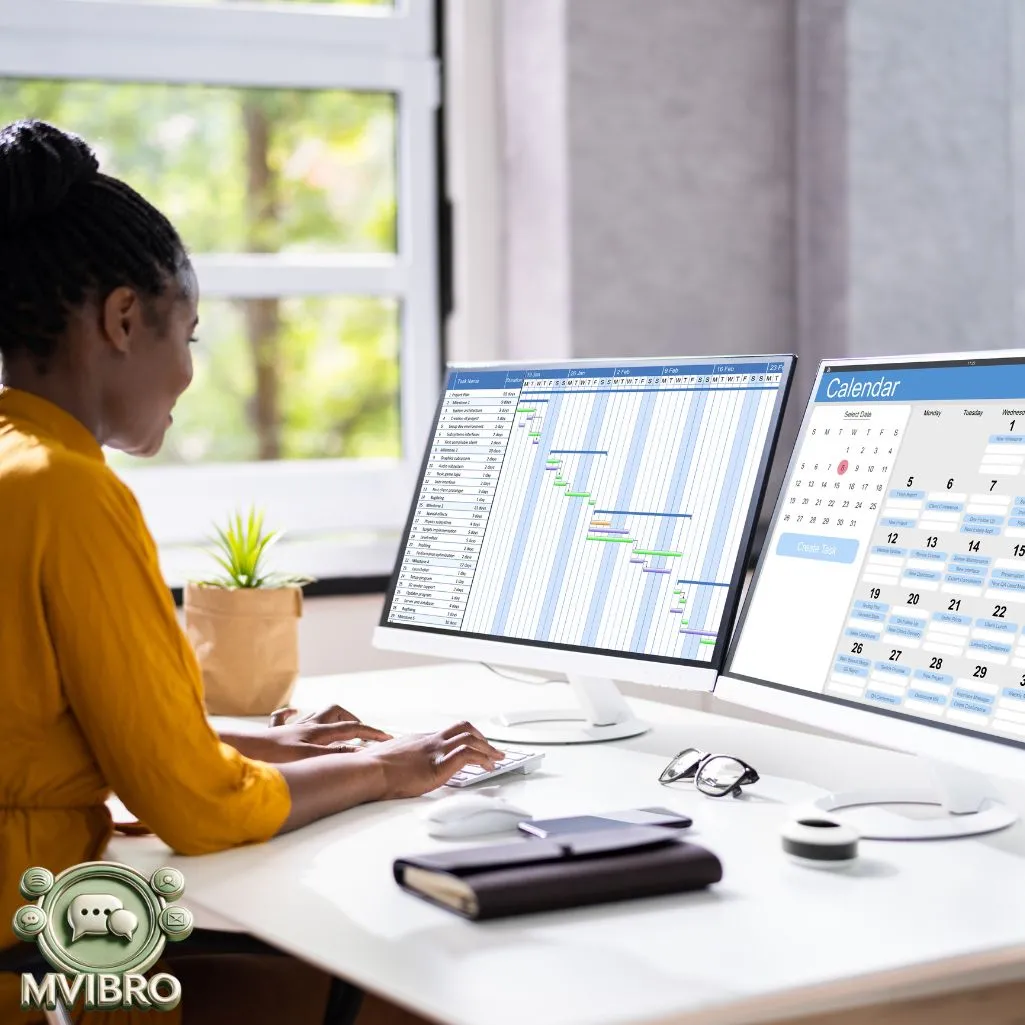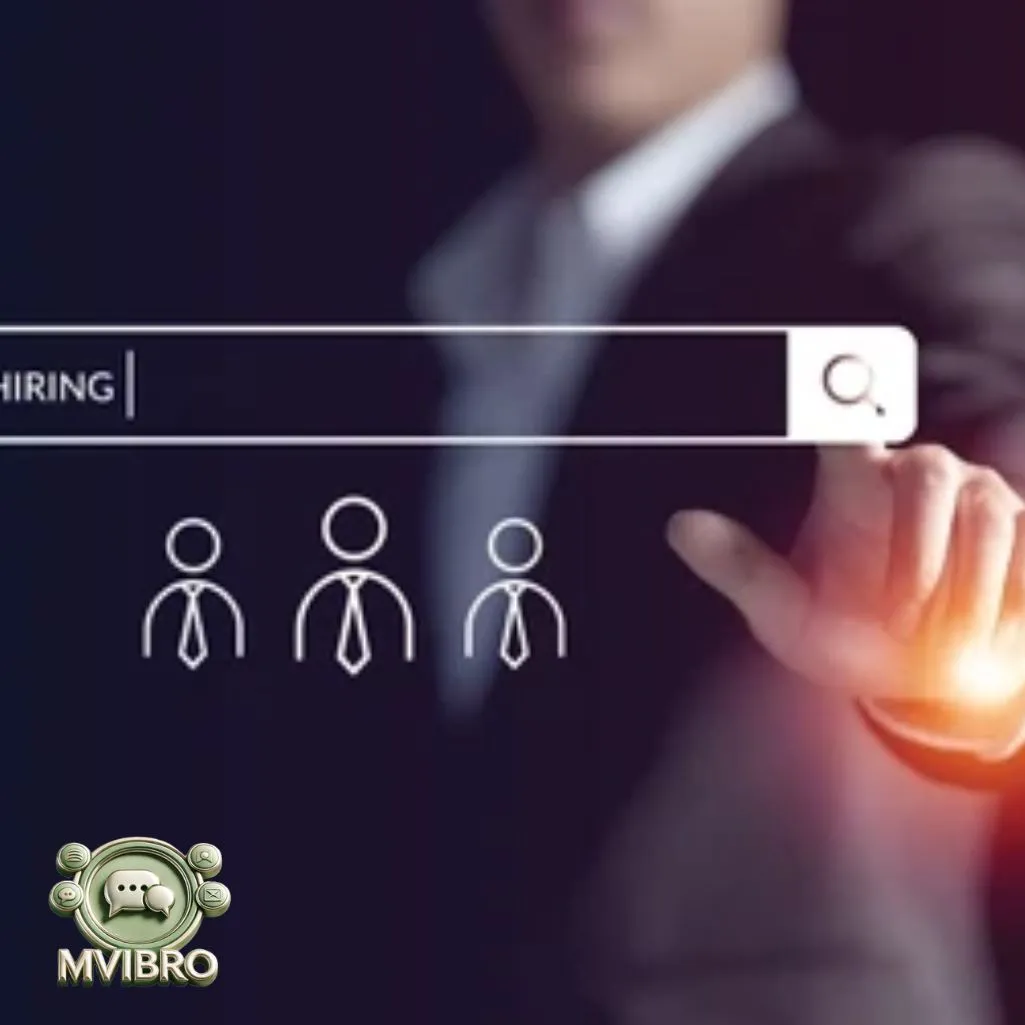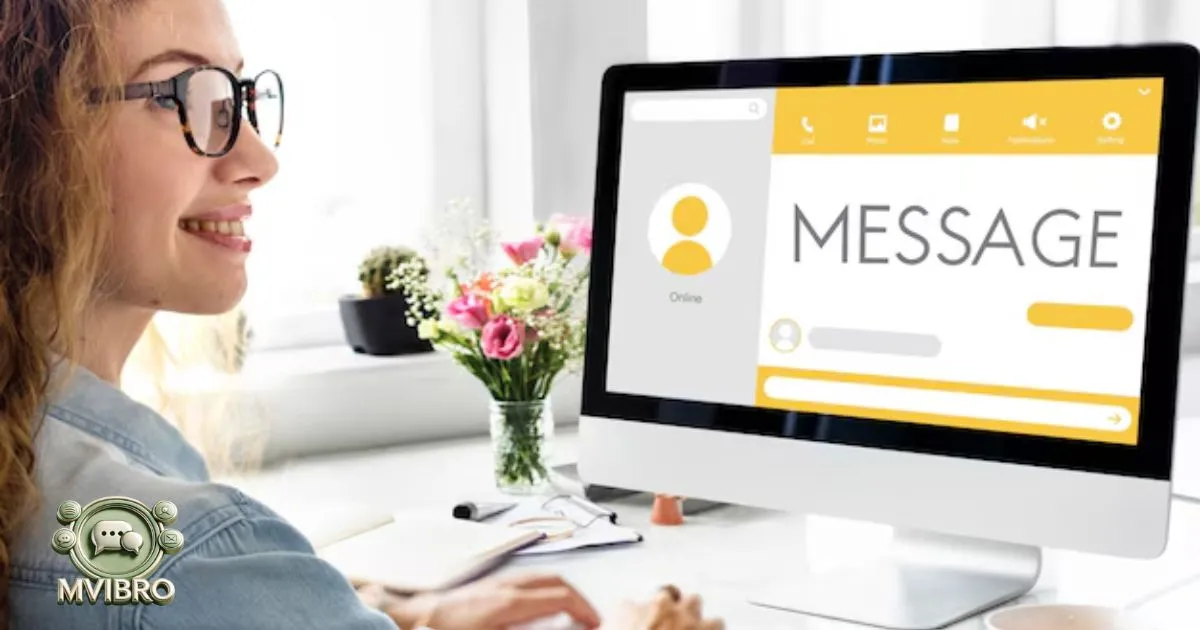“Responding to a LinkedIn recruiter’s message is a chance to shape your career path.”
LinkedIn has become one of the most powerful platforms for professionals to connect, network, and explore job opportunities. When a recruiter reaches out to you, it could be the opening to something great.
You are actively job hunting or just exploring options, responding thoughtfully to a LinkedIn recruiter’s message can set the stage for exciting opportunities. This blog will guide you on how to craft the perfect response, helping you make a lasting impression and take the next step in your career journey.
But before we dive into the strategies, let’s take a closer look at how to approach these messages. LinkedIn recruiters are professionals who can offer you roles that align with your skills and career goals. A well-crafted reply not only highlights your professionalism but also shows your potential as a candidate. By responding in the right way, you can enhance your chances of building a strong network and even securing an interview.
In this blog post, we’ll explore various types of responses you might need to make based on the recruiter’s message. From expressing interest to politely declining, we’ll show you how to handle these situations with confidence. We’ll also provide helpful tips to ensure your responses are clear, concise, and professional, making sure you make a positive impression every time.
What is a LinkedIn Recruiter?
A LinkedIn Recruiter is a professional tool on LinkedIn designed specifically for recruiters and hiring managers to identify, engage, and recruit potential candidates for job openings. It allows recruiters to search LinkedIn’s vast pool of profiles using advanced filters, enabling them to find individuals with the right skills, experience, and qualifications for specific roles.
The tool offers features like direct messaging (InMail), tracking candidates, and saving searches to make the recruitment process more efficient. Unlike the regular LinkedIn profile, LinkedIn Recruiter gives access to more detailed information, expanded search capabilities, and advanced communication features, making it a powerful tool for talent acquisition.
How to reply to linkedin recruiter
Example Response
Hi [Recruiter’s Name],
Thank you for reaching out to me regarding [job title/opportunity]. I appreciate you considering me for this role. I’m excited to learn more about this opportunity and how I can contribute to [company name]. Below are a few details I’d like to share:
Express Interest: Mention your excitement for the role or company if it aligns with your goals.
Acknowledge the Opportunity: Appreciate their effort in reaching out to you.
Brief Overview of Fit: Highlight relevant skills or experiences that match the opportunity.
Ask for More Information: Inquire about specific responsibilities, team structure, or company culture.
Schedule Next Steps: Offer to schedule a time for further discussion or an interview.
Looking forward to hearing from you!
Best regards,
[Your Full Name]
List of Replies to “LinkedIn Recruiter”
- Interested and Available
- Interested but Need More Information
- Interested but Not Available Yet
- Open to Future Opportunities but Not Interested
- Happy Not and Interested in Current Role
- Unlikely to Engage and Not Interested
- Request for Referral
- Exploring Freelance/Consulting Opportunities
- Salary/Compensation Inquiries
- Scheduling an Interview or Call
- Already in Process with the Same Company
- Seeking Remote or Flexible Work
- Request for Part-Time Opportunities
- Following Up After Previous Communication
- Exploring Career Change
- Location Preference Inquiry
- Expressing Interest in Leadership Roles
- Negotiating Better Terms
- Asking About Company Culture
- Seeking Roles with Specific Technologies or Tools
How to respond to a recruiter on linkedin
Express Gratitude:

Start your response by thanking the recruiter for reaching out. For example, “Thank you for contacting me about this exciting opportunity!”
Show Enthusiasm:
Demonstrate your interest in the role or company if you’re genuinely intrigued. For instance, “I’m very interested in learning more about the position and how I can contribute to your team.”
Ask for More Details:
Politely request additional information about the role, responsibilities, or company culture to evaluate if it’s a good fit for you. Example: “Could you please share more details about the role and its key expectations?”
Tailor Your Response:
Highlight relevant skills or experiences that align with the position. For example, “I believe my experience in [specific skill/industry] aligns with the requirements of this role.”
Be Professional and Clear:

Keep your tone polite and your message concise. End with a call to action, such as, “I’d be happy to schedule a time to discuss further. Please let me know your availability.”
Available and Interested
- Acknowledge the recruiter’s message with gratitude.
- Express genuine excitement about the role.
- Confirm your availability for a conversation or interview.
- Briefly highlight relevant skills or experience that match the job description.
- Offer flexibility in scheduling a meeting or call.

- Mention any specific projects or achievements that showcase your qualifications.
- Reiterate your enthusiasm for the company and the opportunity.
- Be professional in your tone and language.
- Provide clear contact details, such as phone or email.
- Ask about the next steps in the recruitment process.
- Show openness to any additional information or resources they may provide.
- Express willingness to discuss compensation and benefits.
- Mention your current availability for a transition (if employed).
- Follow up with a request for additional details about the interview format or process.
- Close with a polite and professional sign-off, expressing thanks.
Interested but Need More Information
- Thank the recruiter for reaching out to you.
- Express interest in learning more about the opportunity.
- Request more details about the company culture and values.
- Ask about the specific responsibilities of the role.

- Inquire about the team structure and whom you’d be reporting to.
- Seek clarification on the role’s long-term career growth potential.
- Ask about the work environment and whether it’s remote or on-site.
- Request more information about the company’s products, services, or market position.
- Inquire about the team dynamics and the management style.
- Ask about any required qualifications or skills that weren’t listed in the initial message.
- Seek clarification about the compensation package and benefits.
- Request information about the next steps in the interview process.
- Inquire about the timeline for the hiring process.
- Be specific in your questions to show you’re serious and thoughtful.
- Close by thanking them for the additional details and confirming your interest.
Interested but Not Available Yet
- Acknowledge the recruiter’s message and express appreciation for the opportunity.

- Clearly state that you’re currently unavailable but open to future opportunities.
- Mention the reason for your unavailability (e.g., existing job commitment or personal reasons).
- Provide an estimated timeline for when you might be available to discuss the role.
- Express interest in keeping in touch for future openings.
- Ask if they would like to connect at a later time.
- Show enthusiasm for staying connected even if the timing isn’t right now.
- Suggest keeping your LinkedIn profile active for future consideration.
- Mention any upcoming milestones that may make you available soon (e.g., completing a project).
- Be clear and honest about your situation to avoid misunderstandings.
- Offer alternative ways to stay engaged, such as networking or future discussions.
- Thank the recruiter for considering you for the opportunity.
- Suggest following up after a certain period to revisit the possibility.
- Reaffirm your interest in the company and its mission.
- End with a professional and courteous sign-off, offering thanks.

Not Interested but Open to Future Opportunities
- Politely acknowledge the recruiter’s message and thank them for reaching out.
- Clearly explain why the current opportunity isn’t a fit for you.

- Emphasize that you are not interested in the role at the moment.
- Express appreciation for the recruiter’s interest in your profile.
- Mention that you would like to stay connected for future opportunities.
- Share that you’re open to hearing about other roles that might align better with your interests.
- Be respectful and professional while declining the offer.
- Express interest in learning more about the company, even if the current role isn’t right.
- Offer your contact details for future follow-up.
- Politely decline the position but express your ongoing interest in the recruiter’s network.
- Mention your current career goals to clarify why this role isn’t the best fit.
- Reaffirm that you value the recruiter’s time and consideration.
- Provide information about your ideal role, so they know what to approach you with next.
- Let the recruiter know you’re available for networking or sharing industry insights.
- Close with gratitude and optimism for future opportunities.
Happy in Current Role and Not Interested
- Politely thank the recruiter for reaching out.

- Acknowledge the role, but express that you’re happy in your current position.
- Mention how satisfied you are with your current job, role, and responsibilities.
- Politely decline the opportunity but do so with professionalism.
- Express that you’re not actively looking for a job change right now.
- Emphasize your focus on your current role and career path.
- Reaffirm your interest in staying connected for potential future opportunities.
- Let the recruiter know you appreciate their consideration but are content where you are.
- Offer to stay in touch and exchange insights or advice on professional growth.
- Maintain a positive tone while declining the offer.
- Mention that you’re open to hearing about future opportunities, but not at the moment.
- Thank the recruiter again for their time and for considering you.
- Politely decline the interview or further discussions.
- Reaffirm that your current position aligns well with your personal and professional goals.
- Close with a friendly sign-off, leaving the door open for future engagements.

Not Interested and Unlikely to Engage
- Acknowledge the recruiter’s message with a thank you.
- Politely explain that you are not interested in the current opportunity.
- Mention that you’re not actively seeking new roles or opportunities.
- Be clear and direct without sounding dismissive.
- Thank them for considering you but clarify that you’re unlikely to engage further.
- Express your contentment with your current job and career path.
- State that you’re not open to opportunities at this time.
- Avoid being overly detailed about why you’re not interested to maintain professionalism.
- Offer to stay connected for possible future opportunities but clarify you’re not available now.
- Be respectful and professional in your response, even if you’re not interested.
- Mention that you have a clear focus on your current career goals.
- Thank the recruiter for their time and understanding.
- Keep the tone polite but firm in your disinterest.
- Avoid any unnecessary back-and-forth to save both parties time.
- Close with a professional and courteous sign-off, ensuring no hard feelings.
Request for Referral
- Acknowledge the recruiter’s message and express appreciation for their outreach.
- Politely ask if the recruiter could refer you to someone for the position or company.
- Clearly explain why you feel the role or company aligns with your skills and experience.
- Mention your interest in the recruiter’s network and ask for guidance.
- Share your resume or LinkedIn profile for reference.
- Request more information about the position or company, in case the referral is possible.
- Express your openness to other roles within the same company or similar organizations.
- Acknowledge the recruiter’s time and consideration for making the referral.
- Be professional in your tone while politely requesting their support.
- Express willingness to offer assistance or network with others in return.
- Emphasize how a referral would greatly enhance your application process.
- Politely clarify the specifics of the referral process if unsure.
- Show enthusiasm for the potential opportunity and your readiness to connect.
- Offer to have a quick call or chat to discuss how you could be a good fit.
- Close with a professional and respectful request, thanking them for their time.
Exploring Freelance/Consulting Opportunities
- Thank the recruiter for reaching out and show interest in freelance or consulting roles.
- Mention your interest in exploring flexible work arrangements.
- Share your freelance/consulting experience and how it aligns with the role.
- Ask if the company offers freelance or consulting positions.
- Inquire about the company’s attitude toward freelance work or remote arrangements.
- Highlight your skills that are especially suited for project-based or consulting roles.
- Mention any successful freelance projects you’ve worked on in the past.
- Express interest in learning more about the project or the scope of work.
- Ask if the company is open to short-term engagements or contract work.
- Offer your availability and flexibility for both short- and long-term opportunities.
- Share your preferred freelance rate or compensation expectations.
- Clarify the work style (remote or on-site) and the project duration.
- Express your desire to contribute to their business goals as a freelancer or consultant.
- Politely ask if the role has any flexibility regarding the number of hours or projects.
- Close with a professional sign-off, showing enthusiasm for the opportunity.
Salary/Compensation Inquiries
- Acknowledge the recruiter’s message and express interest in discussing the role.
- Politely ask for clarification on the salary range for the position.
- Express that compensation is an important factor in considering the opportunity.
- Request information about any benefits or perks that are included in the compensation package.
- Ask if the company offers performance-based bonuses or incentives.
- Inquire if the salary is negotiable based on experience and skills.
- Clarify if the position offers any opportunities for salary growth over time.
- Mention your salary expectations based on industry standards and your experience.
- Show that you are flexible but would appreciate transparency regarding compensation.
- Ask about the payment structure (e.g., monthly, annual, hourly).
- Inquire about any relocation assistance if the position is location-specific.
- Request information on stock options, health insurance, or other company benefits.
- Ask if the compensation is competitive for your level of experience and expertise.
- Be polite and professional in your inquiry, ensuring you don’t come off as demanding.
- Thank the recruiter for providing compensation details and next steps.
Scheduling an Interview or Call
- Thank the recruiter for reaching out and show interest in scheduling an interview.
- Offer your availability for specific dates and times for a call or interview.
- Confirm the interview format (e.g., phone, video, or in-person).
- Ask about the duration of the interview to prepare accordingly.
- Request the names and roles of the interviewers, if possible.
- Mention any details you need to know prior to the interview (e.g., dress code, agenda).
- Express your enthusiasm about the opportunity to discuss the role in more detail.
- Offer flexibility in case the recruiter needs to adjust the schedule.

- Confirm your preferred contact method (e.g., phone number, video conferencing platform).
- Express your readiness to provide any additional documents or information beforehand.
- Clarify the time zone for the interview if applicable, especially for remote candidates.
- Politely remind them to confirm the meeting details.
- Show appreciation for their time and effort in arranging the interview.
- Ask if there are any materials or preparations they recommend for the interview.
- Close with gratitude and a positive sign-off, looking forward to the conversation.
Already in Process with the Same Company
- Acknowledge the recruiter’s message and thank them for reaching out.
- Politely inform them that you’re already in the process with the same company.
- Clarify the stage you’re in with the application or interview process.
- Offer to update them on your progress if they need more details.
- Mention that you’re excited about the opportunity with the company.
- Politely ask if they have any additional insights about the process or timeline.
- Express your gratitude for their interest, even though you’re already in process.
- Let the recruiter know you’ll keep them informed about any new developments.
- Reaffirm your interest in the company and the role, even though you’re in discussions.
- Ask if there’s anything you should prepare for or expect in the next steps.
- Express your interest in maintaining contact for any future roles.
- Clarify your availability for further discussions if the current process doesn’t work out.
- Offer to connect with them on LinkedIn for future opportunities.
- Thank the recruiter again for reaching out and offering the opportunity.
- Close with a polite, professional sign-off.
Seeking Remote or Flexible Work

- Thank the recruiter for reaching out and express interest in the opportunity.
- Politely inquire if the role offers remote work or flexible hours.
- Explain that remote work or flexibility is important to you due to personal or professional reasons.
- Ask if the company has any policies regarding telecommuting or hybrid work options.
- Mention your experience working remotely, if applicable, and how it aligns with the role.
- Ask about the company’s stance on work-life balance and flexibility in the workplace.
- Inquire if the position offers flexible hours or the ability to adjust schedules.
- Show enthusiasm about the potential to work remotely and be productive.
- Be transparent about your needs for a flexible work schedule.
- Express your flexibility to work from the office, if necessary, but highlight your preference for remote work.
- Clarify the company’s approach to managing remote teams and communication tools.
- Politely ask if there are any expectations regarding work hours or availability.
- Thank them for considering your request for flexibility and your interest in the role.
- Reaffirm your enthusiasm for the position despite the flexibility inquiry.
- Close with a polite, professional sign-off, thanking them for their time.
Request for Part-Time Opportunities
- Acknowledge the recruiter’s message and express your interest in the company.
- Politely inquire if the position offers part-time opportunities or flexible hours.
- Mention your current schedule and how part-time work would align with your goals.
- Explain why a part-time role would be ideal for your current situation.
- Inquire if the company has any openings for part-time employees or project-based work.
- Be clear about your expected number of hours and preferred schedule.
- Express your enthusiasm for the role despite seeking part-time work.
- Ask about the possibility of transitioning from part-time to full-time in the future.
- Clarify any details about job responsibilities that might be affected by part-time hours.
- Mention your ability to contribute effectively in a part-time capacity.
- Ask if the company offers benefits or incentives for part-time employees.
- Show flexibility if the company offers temporary or project-based part-time roles.
- Thank them for considering your request and your interest in the company.
- Be professional and polite while discussing your preference for part-time work.
- Close with a courteous sign-off, expressing thanks for the recruiter’s time and consideration.
Following Up After Previous Communication
- Acknowledge the recruiter’s previous message and express gratitude for their time.
- Politely remind them of your previous conversation and your ongoing interest.
- Ask for any updates regarding the position or next steps in the process.
- Show continued enthusiasm for the role and the company.
- Inquire about the status of your application or interview.
- Mention your availability for any follow-up calls or meetings.
- Express that you’re excited about the opportunity and eager to move forward.
- Be polite and professional in your follow-up, without sounding impatient.
- Thank the recruiter for their continued consideration of your application.
- Offer any additional information or documents if needed.
- Ask if there are any changes in the hiring timeline.
- Reaffirm your interest and readiness to take the next steps.
- Mention any new accomplishments or projects that may add value to your candidacy.
- Be concise and clear in your request for an update.
- Close with a polite and positive sign-off, thanking them for their time.
Exploring Career Change

- Acknowledge the recruiter’s message and express your interest in exploring new career paths.
- Explain that you are considering a career change and looking for opportunities in a different field.
- Highlight your transferable skills and experience that can add value in the new industry.
- Inquire if the recruiter has any roles that align with your new career interests.
- Share your enthusiasm for learning and adapting to a new role or industry.
- Ask if they could suggest any companies or roles that would be a good fit.
- Mention any additional training or certifications you are pursuing to facilitate the change.
- Be open to advice or guidance from the recruiter based on their experience.
- Show excitement for the opportunity to explore new roles and take on fresh challenges.
- Offer to discuss your career change journey in more detail during a call.
- Ask if the recruiter has worked with others who made similar transitions.
- Express your desire for a role that will allow you to grow and learn.
- Thank the recruiter for their time and consideration of your career change.
- Show flexibility regarding the type of role or position, as you are open to new experiences.
- Close with a professional and positive sign-off, looking forward to hearing from them.
Location Preference Inquiry
- Acknowledge the recruiter’s message and express interest in the role.
- Politely inquire if the position is available in your preferred location.
- Share your location preference and explain why it’s important to you.
- Ask if there are any opportunities available in nearby cities or regions.
- Express flexibility, if applicable, but clarify any specific location requirements.
- Mention your comfort with relocation, if that’s an option for the role.
- Inquire if the company offers any remote work options for the role.
- Ask about the company’s policies regarding relocation assistance.
- Share any previous experience working in the desired location or region.
- Express your interest in learning more about the location where the role is based.
- Be clear about any specific location constraints (e.g., family commitments, etc.).
- Politely ask if the recruiter can provide further details on the location and office environment.
- Reaffirm your enthusiasm for the role despite location considerations.
- Thank the recruiter for providing any additional location-related information.
- Close with a polite, professional sign-off, expressing your willingness to consider the position based on location.
Heartfelt Birthday Wishes for Your Daughter-in-Law
Expressing Interest in Leadership Roles
- Acknowledge the recruiter’s message and express your interest in leadership opportunities.
- Highlight your experience in leadership or management roles.
- Mention specific skills and accomplishments that make you suitable for leadership positions.
- Ask if the company has openings in leadership or managerial roles.
- Share your enthusiasm for contributing to the success of a team or organization.
- Inquire about the company’s leadership culture and approach to management.
- Ask about the opportunities for growth within leadership positions.
- Express your willingness to take on responsibilities and lead projects or teams.
- Clarify the size and structure of the team you would potentially be leading.
- Mention any leadership training or certifications that you have completed.
- Ask about the leadership challenges the company is currently facing and how you could help.
- Express your desire to work for a company that values leadership and professional growth.
- Be open to learning about new leadership opportunities that may arise in the future.
- Thank the recruiter for considering your interest in leadership roles.
- Close with a polite sign-off, reaffirming your excitement for potential leadership roles.
Negotiating Better Terms
- Acknowledge the recruiter’s message and thank them for the opportunity.
- Express interest in the role but mention that you would like to discuss the terms of the offer.
- Clearly state the areas where you believe improvements could be made (e.g., salary, benefits, work-life balance).
- Share your reasons for requesting better terms, such as industry standards or personal circumstances.
- Mention your value and skills, highlighting why you feel the terms should be adjusted.
- Ask if the company is open to negotiating salary or other compensation elements.
- Inquire about any opportunities for performance-based bonuses or raises.
- Express your openness to compromise, but emphasize that certain terms are important to you.
- Politely ask for clarification on any benefits or perks not included in the initial offer.
- Show understanding of company policies while advocating for fair terms.

- Inquire if there is room for improvement in job flexibility or remote work options.
- Request a conversation or meeting to discuss the terms in more detail.
- Express gratitude for the recruiter’s time in reviewing your concerns.
- Reaffirm your interest in the role if the terms can be adjusted.
- Close with a professional sign-off, thanking the recruiter for their understanding.
Asking About Company Culture
- Acknowledge the recruiter’s message and express interest in learning more about the company.
- Ask if the recruiter could share details about the company’s culture and values.
- Inquire about the company’s approach to work-life balance and employee well-being.
- Show interest in the company’s team dynamics and how they encourage collaboration.
- Ask if the company promotes diversity, equity, and inclusion within the workplace.
- Inquire about the company’s stance on professional development and career growth.
- Ask about the leadership style within the company and how employees are supported.
- Mention your preference for a company culture that values transparency and open communication.
- Express your enthusiasm for finding a company where you can thrive professionally and personally.
- Inquire if there are any social or team-building activities offered to employees.
- Ask if the company has any programs for employee recognition or reward.
- Show interest in understanding how the company handles challenges or setbacks.
- Politely ask if the recruiter can provide insights into the company’s work environment.
- Emphasize how company culture influences your decision-making in selecting a role.
- Thank the recruiter for any insights they can provide into the company culture.
Seeking Roles with Specific Technologies or Tools
- Acknowledge the recruiter’s message and express interest in the opportunity.
- Mention the specific technologies or tools you are proficient in and are seeking to use in your next role.
- Ask if the company uses any of the technologies or tools you specialize in.
- Inquire about the opportunity to work with emerging technologies or tools.
- Share your interest in working for a company that is technologically innovative.
- Ask if there are any specific technical skills or certifications the company values for the role.
- Express your enthusiasm for contributing to a team that uses cutting-edge technologies.
- Highlight how your technical skills can help the company achieve its goals.
- Inquire if there is room for learning and development regarding new technologies within the company.
- Mention any projects or accomplishments that showcase your expertise with specific tools or technologies.
- Ask if the company is open to employees introducing new tools or technologies.
- Share your desire to continue learning and staying up to date with the latest tech trends.
- Clarify the company’s technical stack and if it aligns with your expertise.
- Emphasize your passion for technology and innovation in your job role.
- Close with gratitude, expressing your interest in roles that utilize specific technologies or tools.
How to Respond to a Recruiter on LinkedIn Sample

- Hello [Recruiter’s Name], thank you for reaching out. I am interested in learning more about this role. Could you share more details about the job responsibilities and expectations?
- I appreciate your message, [Recruiter’s Name]. The opportunity sounds intriguing. Can we schedule a call to discuss it further?
- Thank you for contacting me. I am open to exploring this role. Could you provide insights on the company’s work culture and growth opportunities?
- I’m glad you reached out, [Recruiter’s Name]. This position seems like a great match. I’d love to hear more about how my skills align with the role.
- I appreciate the opportunity, [Recruiter’s Name]. I’d like to understand the key challenges in this role before moving forward.
- Thanks for considering me for this role. I’d be happy to connect and discuss how my experience aligns with your needs.
- I’m excited to learn more. Can you share more about the hiring process and timeline?
- This opportunity looks promising. I’d love to connect and understand how my expertise fits.
- I appreciate the outreach. Let’s schedule a call to discuss this role in more detail.
- Thank you for the message. I am open to a conversation about how I can contribute.
- I’m grateful for your message. Could you provide salary expectations and benefits information?
- I’d like to explore this further. Can we discuss the role’s key performance indicators?
- I am intrigued by this position. What qualities are you looking for in an ideal candidate?
- Thanks for reaching out. I’d love to know more about career growth within the company.
- I appreciate your time. Please share details on the team structure and reporting hierarchy.
How to Respond to a Recruiter on LinkedIn If Not Interested
- Thank you for reaching out, [Recruiter’s Name]. I appreciate the opportunity but am not looking for a change at the moment.
- I appreciate your message. At this time, I am happy in my current role and not exploring new opportunities.
- Thank you for considering me. This role does not align with my career goals, but I appreciate your interest.
- I’m honored by the outreach. However, I am not looking to transition at this time.
- Thanks for the message. I am currently focused on my existing role but would love to stay connected for future opportunities.
- I appreciate your time, [Recruiter’s Name]. While this role isn’t the right fit, I’d be happy to refer someone in my network.
- Thanks for reaching out. At this time, I am not considering a move, but I’ll keep your details for future reference.
- I truly appreciate the opportunity. However, my current role aligns well with my long-term goals.
- This role looks interesting. Unfortunately, I’m not looking for new opportunities at the moment.
- Thank you for the offer. While I’m staying in my current position, I’d love to keep in touch.
- I appreciate your outreach. Right now, I’m focused on internal growth at my current company.
- Thanks for thinking of me. I’ll revisit new roles in the future and will reach out if my situation changes.
- I’m grateful for the consideration. This isn’t the right fit now, but I’d love to stay connected.
- Thanks for contacting me. While I’m not interested, I’d be happy to share the opportunity with my network.
- I appreciate the time you took to message me. Currently, I’m content with my role but would be open to future discussions.
How to Respond to a Job Opportunity Email
- Dear [Recruiter’s Name], I appreciate you reaching out. I’m interested in this opportunity and would love to learn more.
- Thank you for considering me. Could you share more details about the role’s key responsibilities?
- I appreciate the opportunity. Let’s schedule a call to discuss the next steps.
- Thanks for contacting me. I’d love to understand the company culture before proceeding.
- This position interests me. Could we discuss salary expectations and benefits?
- I’m excited about this opportunity. Let’s arrange a time to go over the job specifics.
- I’d love to explore this role further. Can you provide insights into team dynamics?
- Thanks for reaching out. What is the expected timeline for hiring?
- I appreciate the offer. Can we discuss growth opportunities within the organization?
- Thank you for considering me. I’d love to hear more about company values.
- This role sounds promising. Can we talk about how my skills align with your expectations?
- I appreciate your time. What are the key challenges associated with this position?
- I’d love to discuss this further. Can we go over the long-term career prospects?
- Thanks for reaching out. I’d like to understand more about daily tasks in this role.
- I appreciate this opportunity. Please share details about the expected workload and responsibilities.
How to Respond to Recruiter Emails After Application Submission

- Dear [Recruiter’s Name], thank you for your update. I appreciate the opportunity to be considered.
- I appreciate the response. Please let me know if there’s anything else you need from me.
- Thank you for the update. I’m looking forward to the next steps in the process.
- I appreciate the consideration. Let me know if you require further details from my end.
- I’m excited about this role. Could you share any feedback on my application?
- Thank you for your time. I’d love to understand the expected timeline for the hiring process.
- I appreciate your update. Please inform me about the next stage of the interview process.
- Thanks for reaching out. Do you have any insights into how I can prepare for the next step?
- I’m grateful for this opportunity. Let me know if additional materials are needed.
- I appreciate the consideration. When can I expect to hear about the final decision?
- Thanks for the response. I’m eager to proceed and appreciate any updates you can provide.
- I appreciate your time. Let me know if there’s any follow-up required from my side.
- I’m excited to move forward. What should I expect in the next interview round?
- Thanks for keeping me updated. Please share any further steps I should take.
- I appreciate the opportunity. Looking forward to hearing about the hiring decision soon.
Reply to LinkedIn Message Sample
- Hello [Recruiter’s Name], thanks for your message. How can I assist you today?
- I appreciate your outreach. Please share more details about the opportunity.
- Thanks for connecting! What would you like to discuss?
- I’m glad to hear from you. Could you elaborate on your message?
- I appreciate the message. Looking forward to learning more.
- Thanks for reaching out. How can I support you?
- Nice to connect! What are your thoughts on this discussion?
- I appreciate your time. Let me know how I can assist.
- Thanks for your message. How can I help?
- Happy to hear from you. What’s the next step?
- I appreciate the contact. What do you have in mind?
- Thanks for getting in touch. Let me know what you need.
- I’m glad to connect. Looking forward to discussing further.
- Appreciate your message. How can I contribute?
- Thanks for messaging me. Let’s talk more about this.
How to Respond to LinkedIn Messages
Responding to LinkedIn messages effectively is key to building meaningful professional relationships. Your response should always be polite, concise, and relevant to the context of the message.
When you’re replying to a recruiter, a colleague, or a networking request, maintaining a professional tone is essential.
Start by addressing the sender by name, express appreciation for their message, and address their inquiry or offer directly. If further action is required, clearly state the next steps or ask clarifying questions.
Timely responses demonstrate professionalism and respect for the other person’s time. However, take the necessary time to craft a thoughtful reply that reflects genuine interest and effort.
Avoid generic or overly formal responses; instead, aim for authenticity while staying professional. If you’re unable to assist or aren’t interested in the opportunity, politely decline while keeping the door open for future interactions.
Key Tips for Responding to LinkedIn Messages:
Personalize Your Response: Address the sender by their name and reference any shared connections or interests if applicable.
Be Concise and Clear: Keep your response brief but ensure it addresses the main point of the message.
Maintain a Professional Tone: Use polite language and avoid overly casual or informal phrases.
Respond in a Timely Manner: Aim to reply within 24-48 hours to show respect for the sender’s time.
Include a Call-to-Action When Relevant: Suggest a follow-up action, such as scheduling a meeting or sharing additional details.
Why Responding to LinkedIn Recruiters Matters
Responding to LinkedIn recruiters is crucial because it provides an opportunity to make a strong first impression and potentially advance your career. Recruiters often reach out with roles that align with your skills and experience, making it a chance to engage with top companies or explore new career paths.
A timely and thoughtful response not only demonstrates your professionalism but also shows that you are interested and proactive in your job search. Ignoring messages could result in missed opportunities, especially if the recruiter has a limited time to fill the role. Ultimately, how you respond can shape your reputation in your industry and influence future opportunities.
First Impressions Matter: Crafting Your Response
Understanding the Importance of a Prompt Response
Responding quickly to a LinkedIn recruiter’s message demonstrates your enthusiasm and professionalism. A prompt reply lets the recruiter know you are serious about the opportunity, increasing your chances of being considered for the role. Recruiters often work under tight timelines, and being one of the first candidates to respond may give you an edge in the hiring process. While speed is important, it’s equally essential to ensure your response is well-crafted.
How to Maintain Professionalism in Your Message
When replying to a recruiter, it’s important to maintain a tone of respect and courtesy. Keep the message clear and concise, avoiding casual language or slang. A professional response reflects well on your ability to interact within a work environment. Additionally, use proper grammar and punctuation, as these are key indicators of your attention to detail and communication skills.
Personalization: Why It’s Key to a Great Reply
Personalizing your response is essential in showing the recruiter that you’ve carefully read their message and are genuinely interested in the role. A generic reply might give the impression that you’re not fully engaged. Personalizing your message also allows you to highlight your skills and experiences that align specifically with the job they’re offering. This extra effort can set you apart from other candidates.
How to Analyze the Recruiter’s Message

Essential Details to Look for in a Recruiter’s Message
When reviewing a recruiter’s message, pay close attention to key information such as the job title, location, and company name. Understanding these details will help you assess if the opportunity aligns with your career goals and preferences. Also, look for any information on the role’s responsibilities and whether they match your qualifications.
Identifying the Job Fit
Before responding, carefully consider whether the job is a good fit for your skills, experience, and career aspirations. Is the role aligned with your expertise, or does it offer opportunities for growth in areas you’re interested in? If it doesn’t seem like a good match, responding politely with your reasons can help maintain a positive relationship with the recruiter.
Researching the Company Before Replying
Take a moment to research the company mentioned in the recruiter’s message. Understanding its mission, values, and work culture can help you tailor your response more effectively. A quick review of the company’s LinkedIn page, website, or recent news articles can provide insight into whether the company is a good fit for you.
Common Mistakes to Avoid When Responding
- Avoiding Generic Responses
One common mistake is sending a generic or canned reply that doesn’t address the specifics of the recruiter’s message. Tailoring your response to the job in question is key to making a strong impression. Personalizing the message shows the recruiter that you are interested in the role and have taken the time to consider the details.
- Being Too Eager or Too Dismissive
While it’s important to show enthusiasm, being too eager or overly eager can make you come across as unprofessional. Conversely, being dismissive or uninterested might leave a negative impression. Striking the right balance in tone is crucial. Always express interest without sounding desperate.
- Forgetting to Ask Key Questions
Not asking clarifying questions or requesting additional details can be a missed opportunity. Questions about the role’s responsibilities, company culture, or team dynamics show that you are genuinely invested in the opportunity and want to make an informed decision.
How to Respond to a LinkedIn Recruiter If You’re Interested
- Crafting a Professional and Engaging Reply
When you’re interested in the opportunity, your response should reflect your excitement while maintaining professionalism. Start by thanking the recruiter for reaching out and briefly express your interest in the role. Highlight your relevant skills or experiences, and invite the recruiter to schedule a conversation. Offering a few time slots for a call or interview demonstrates your eagerness to move forward in the process.
Questions to Ask the Recruiter About the Role
What are the primary responsibilities of the role?
Asking about the core duties of the role gives you a clearer picture of what your day-to-day responsibilities will entail. It will help you decide if the position matches your skills and interests.
What does success look like in this position?
Understanding what success means in the role will give you insight into the company’s expectations. It also allows you to assess if your experience aligns with what they’re looking for.
Can you provide more insight into the company culture?
Knowing about the company’s work environment, values, and team dynamics is crucial. It will help you determine if the company’s culture is a good fit for your personality and career goals.
Is this a remote or in-office position?
Clarifying whether the position is remote, in-office, or hybrid helps you understand if it aligns with your work preferences and lifestyle.
Demonstrating Your Enthusiasm Without Seeming Desperate
It’s important to show interest in a recruiter’s message without coming across as desperate. To do this, keep your tone positive and enthusiastic, but avoid over-explaining or offering excessive praise. Instead, focus on expressing genuine interest in the role and how your skills and experience align with the position.
For example: you can say, “I’m excited to learn more about this opportunity because my background in [specific skill/experience] seems like a great match for your needs.” By showing confidence and enthusiasm for the role, you will stand out without appearing overly eager.
How to Respond If You’re Not Interested

- Declining Gracefully: Maintaining a Positive Relationship
If you’re not interested in the job, it’s important to decline gracefully while maintaining a professional relationship. Acknowledge the recruiter’s message, thank them for considering you, and politely explain why you’re not a fit for the role. For example, you can say, “Thank you for reaching out. After careful consideration, I don’t believe this position aligns with my current career goals, but I appreciate the opportunity.” Keeping the response courteous will ensure the door remains open for future opportunities.
- Keeping the Door Open for Future Opportunities
Even if the role doesn’t interest you right now, always express your willingness to connect in the future. You might say, “While this particular role isn’t the right fit, I would love to stay in touch for future opportunities that might be more aligned with my skills and experience.” This keeps the conversation positive and demonstrates your professionalism and openness to future engagements.
- How to Handle Inappropriate or Irrelevant Job Offers
Occasionally, recruiters might reach out with roles that are completely irrelevant to your skills or industry. In this case, politely decline and, if necessary, explain why the role is not a fit. For example, “Thank you for considering me for this opportunity, but my experience is more aligned with [specific industry/role], and I’m currently focused on that area.” Remaining respectful and clear can help keep the professional relationship intact, even if the job offer isn’t relevant.
- Responding to Jobs Outside Your Industry
When recruiters contact you with job offers in industries outside your expertise, it’s important to politely inform them that you’re focusing on your current industry or specialization. You can say, “I’m currently focusing on opportunities within [specific industry], so I would not be the right fit for this role, but thank you for reaching out.” This will maintain professionalism while also providing clarity about your career focus.
How to respond to a recruiter inquiry
Responding to a recruiter inquiry is an important step in managing your career opportunities. It’s essential to be professional, concise, and courteous while expressing your interest (or lack of it) in the role.
A thoughtful response can help you make a positive impression and build a strong professional network for future opportunities. Below are some key points to include in your reply:
Express Gratitude: Start by thanking the recruiter for reaching out and considering you for the opportunity.
Acknowledge the Role: Mention the position and company they’re representing to show your attentiveness.
Confirm Interest (or Decline): Clearly state your level of interest in the opportunity, and if interested, express enthusiasm.
Provide Availability: Share your availability for a discussion or interview if you wish to proceed.
Ask Questions: Inquire about specific details, such as job expectations, team structure, or compensation, to ensure alignment.
What to Do After You Respond to a LinkedIn Recruiter
- Following Up: When and How to Check In
If you don’t hear back from the recruiter after your initial response, it’s appropriate to follow up. Wait a week or two before sending a polite follow-up message, expressing continued interest and asking for an update. You might say, “I wanted to follow up on my previous message and check in on the status of the role. I’m still very interested in learning more about the opportunity.” This shows initiative and professionalism, while also keeping the conversation moving forward.
- What to Do If You Don’t Get a Responseno
If you don’t get a response to your message, it’s essential not to take it personally. Recruiters are often working with many candidates and may not always have time to respond to everyone. However, if you’ve sent a follow-up message and still don’t hear back, it’s okay to move on. Consider connecting with the recruiter on LinkedIn and continue expanding your network for future opportunities.
Crafting a Winning LinkedIn Profile to Attract Recruiters

- Optimizing Your Headline and Summary
A recruiter’s first impression of you on LinkedIn comes from your headline and summary, so it’s crucial to make them stand out. Use the headline to summarize your expertise and career goals in a concise and impactful way. For example, “Experienced Marketing Professional Specializing in Data-Driven Campaigns”. Your summary should expand on this, highlighting your skills, accomplishments, and career aspirations. Focus on how you can add value to companies and keep the language clear and professional.
- Highlighting Key Skills and Experience
In your LinkedIn profile, make sure to showcase your most relevant skills and experience in your job history and skills section. Recruiters use these sections to find candidates with the right qualifications. Tailor your skills to match the roles you want to attract and include quantifiable achievements wherever possible. For example, “Increased sales revenue by 30% in one year through targeted digital marketing strategies.” This helps recruiters quickly understand your value and why you would be a good fit for their job openings.
Key Insight
1. How should I respond if I’m interested in the role but need more information?
If you’re interested but need more details, express your curiosity clearly and politely ask for specifics about the job, company, or team. This shows you’re engaged but want to make an informed decision.
2. What if I’m not available but want to keep in touch for future opportunities?
In this case, kindly explain that you are currently not available but would like to stay connected for future roles. This leaves the door open for potential opportunities later on.
3. How do I politely decline a recruiter’s offer on LinkedIn?
Be polite and professional while declining. Thank them for the opportunity, explain why the role isn’t a fit for you at the moment, and express interest in staying connected.
4. Should I express interest even if I’m not actively looking for a new job?
Yes! If you are open to hearing about new opportunities
Conclusion
In conclusion, responding to a LinkedIn recruiter’s message is an essential skill for navigating your career path. By using a professional tone, showcasing your strengths, and being honest about your availability, you can leave a positive impression and open doors for future opportunities.
Remember, each message you send is a chance to build your professional network and take the next step in your career journey. Stay open to new possibilities, but always ensure that the opportunity aligns with your personal and professional goals.

Hi! I’m Ethan Matthews, the admin of mvibro.com, dedicated to bringing you the best responses and comebacks to navigate conversations with style and confidence.

